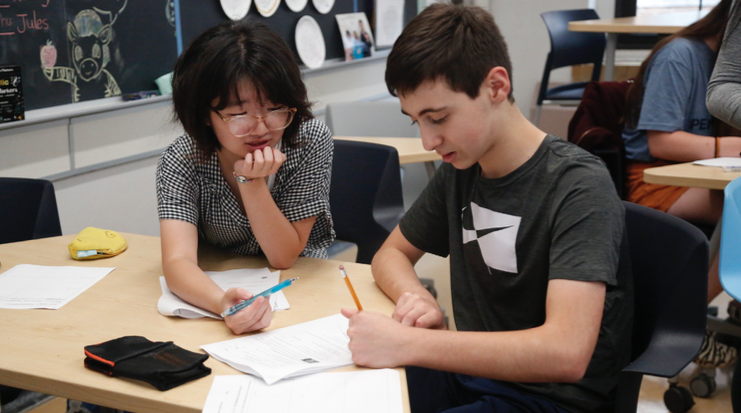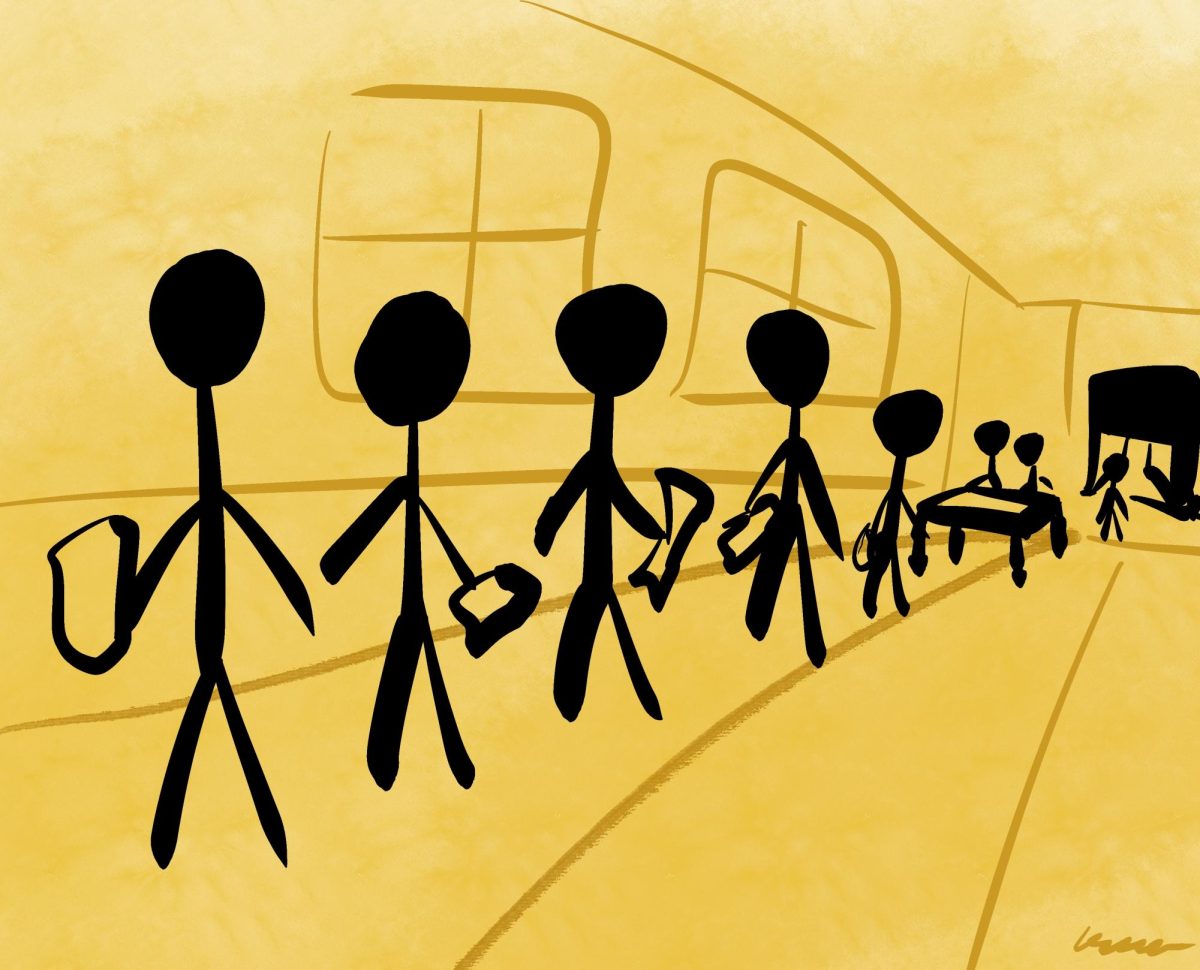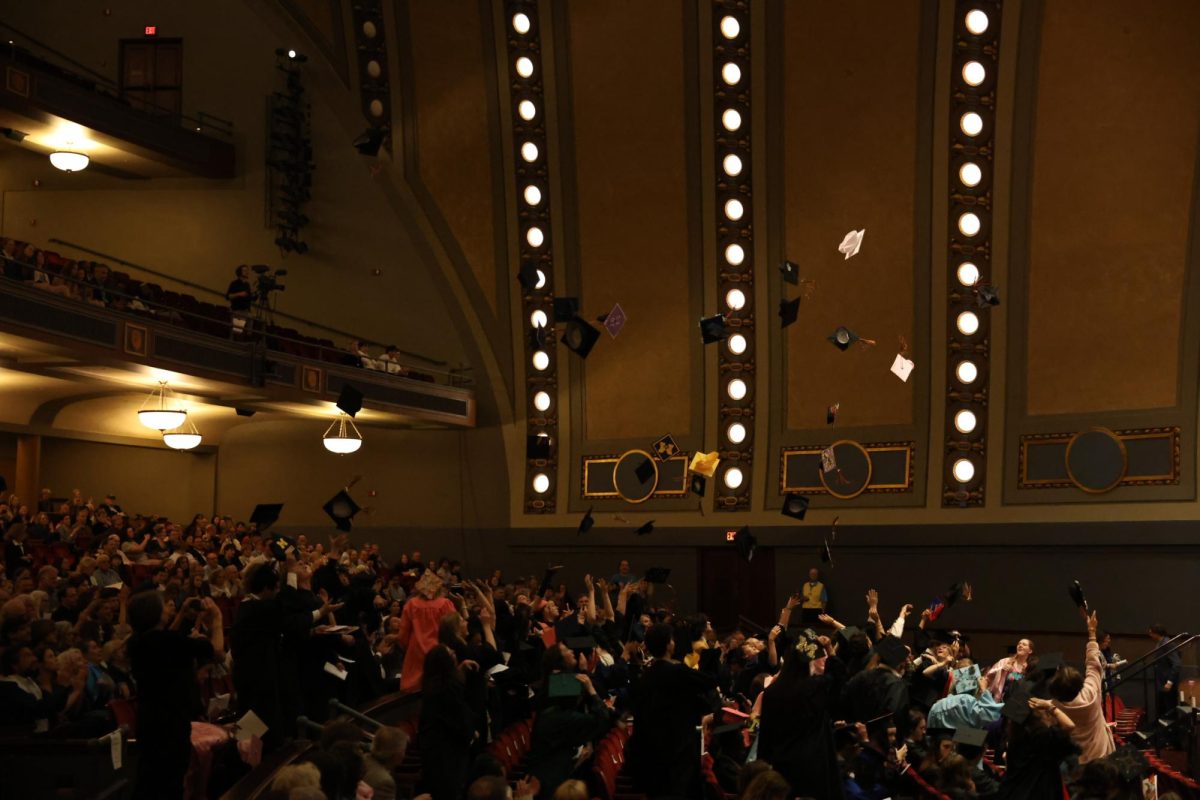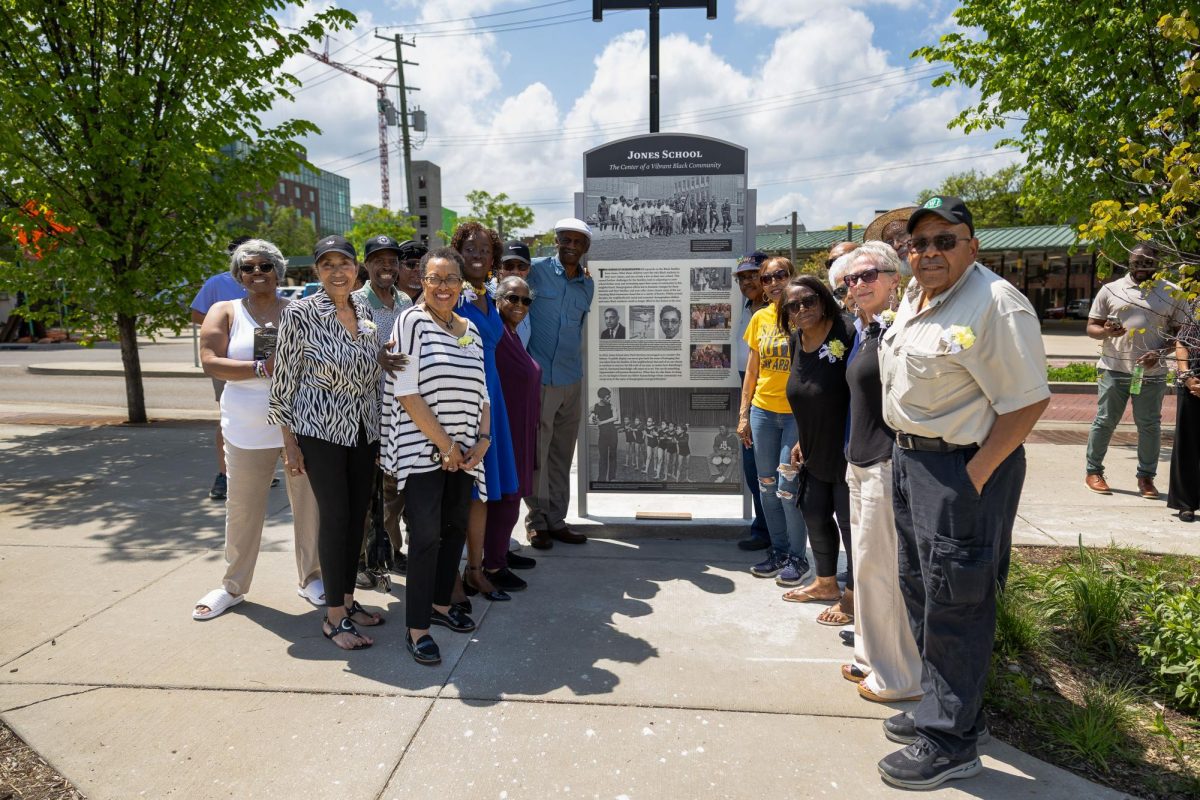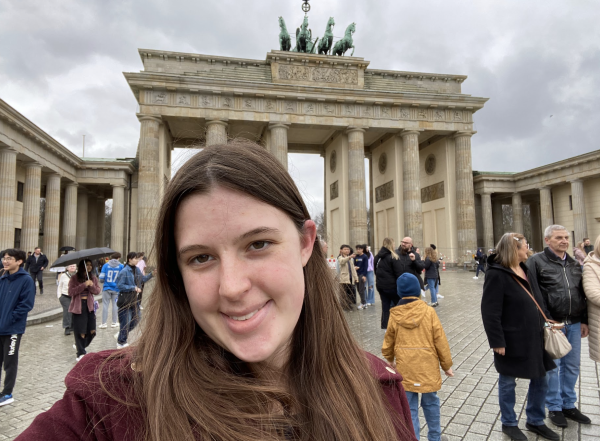When Shanon Kawata moved back to the U.S. from Japan halfway through fifth grade, English and Social Studies were not her strongest subjects. Math, on the other hand, she found easier to understand.
“Math was an easy class for me to follow along with everyone else rather than feeling isolated,” Kawata said.
Her math classes in Japan were more advanced than those in the U.S., and what she was learning in fifth grade had already been taught to her in third grade. It wasn’t until just before freshman year of high school that she realized she could jump ahead. Beginning freshman year, she took Geometry AC at Pio- neer High School and Algebra II at CHS.
“The Geometry class I took at Pi- oneer was an AC class, so it was a rather fast pace, but here at Commu- nity, because I was taking Algebra II, I was surrounded by more upper- classmen, whereas at Pioneer, it was my age group,” Kawata said. “The
age group made a huge difference in the atmosphere, but because I spent most of my time here at Communi- ty, I felt like I fit in more.”
Beginning the second semester, Kawata continued taking Geometry AC and Algebra II, but took the first semester of Precalculus online. She later completed the second semester of Precalculus over the summer, al- lowing her to take Advanced Calcu- lus this year.
Advanced Calculus is equivalent to college-level Calculus I and Cal- culus II, each of which are typically a semester long at the college level.
Prior to this year, CHS had only offered a calculus course equivalent to Calculus I. This course closely re- sembled AP Calculus AB, so many students who took the class opted to take the AP exam for the course in May.
Still, there were others who want- ed to take the AP Calculus BC exam, which corresponded with a course that covered content from Calculus I and II. Maneesha Mankad, the
Photography by Isabella Jacob Shanon Kawata (left) and Oliver Jacobson (right) work on a math problem. They both elected to take Advanced Calculus this year. “I really only had two options: Calc AB or Calc BC,” Jacobson said. “I’m a sophomore right now,soIhavea bunch of free time on my hands, and I figured I could take one pretty hard class, so why not?”
CHS calculus teacher, and her pre- decessor, Anne Thomas, helped kids who decided to take BC to succeed on the exam.
“I would help those kids by pro- viding all the resources and guiding them, giving them old tests and practice problems and videos and resources for prepping for the BC exam,” Mankad said.
Last year was different, however. Approximately 10 students opted to take the BC exam. Mankad set up an independent study that met two blocks a week during the second se- mester where those who were inter- ested in preparing for the exam were mentored by CHS students who had taken Calculus II at either the Uni- versity of Michigan or Washtenaw Community College.
“The students learned a second semester’s worth of college calculus in the second semester at CHS and they took the exam,” Mankad said. “Then kids started saying, ‘Hey, Maneesha, why don’t we have this as a class’ because it’s hard trying to do
32
a whole semester’s worth of course work, in two, three or two and a half months.”
This was on top of the coursework from the second semester of the Cal- culus I-equivalent course.
Mankad and Marci Tuzinsky, Dean of CHS, thought that there was potential for the Advanced Calculus course to be offered in the future, but it soon became clear that the class should be offered the next year. The results of the stu- dent course interest survey sent out towards the middle of the second semester each year saw that around 20 students were interested in taking the course.
That is how Advanced Calculus came to be at CHS.
To prepare for the course, Mankad attended a summer workshop host- ed by College Board.
“I had to really figure out the pac- ing,” Mankad said. “That’s what was kind of getting me, like how are we going to fit all of this? I talked to colleagues and collaborated with other teachers who teach BC to dis- cuss the pacing of the class.”
Although the Advanced Calculus class follows the AP Calculus BC curriculum closely, there are dif- ferences between how the course is taught at CHS versus other schools.
Although CHS doesn’t offer of- ficial AP courses, Mankad believes that the equivalent calculus courses are just as rigorous and prepares stu- dents sufficiently for the AP exams in May. However, Mankad doesn’t just target the AP exam.
“I’m targeting what are you going to need in college,” Mankad said. “I’m targeting how can you be col- lege ready. That’s my goal, so when my kids who are taking Calc II at WCC come in and say ‘Oh my gosh, I knew the lesson already. Nobody else in my class knew the lesson but I already knew,’ that’s the feeling I want my kids to have when they go to college, like we got this.”
Another aspect that sets CHS cal- culus apart from the other schools is how class time is used.
“I think having a 55 minute class for calculus versus having a block long class is a huge difference,” Mankad said. “It’s the same amount of time in a week, but I feel like when you come to a block schedule,
yes, you see the snapshot of the top- ic, but you get all this time to then just sit and mess around and work through problems with your peers.
These longer class times also allow students to get a start on and ask questions about homework, the les- son and prepare for the test.
“So I hope we are able to foster a collaborative environment so that kids feel comfortable,” Mankad said. “It’s a challenging subject to learn, and why not leverage all the expertise in the classroom because we have the time to do that.”
That is not where the support ends, however.
“At CHS, we don’t track,” Mankad said. “We don’t restrict anyone from taking calculus and if someone is really struggling I find ways to alleviate that struggle and to help that person figure it out rather than saying ‘maybe this is not for you.’ I will never say to anyone, this is not for you because I don’t believe that. I believe that everyone can do it if they wanted to. I truly believe that and that is what you will see in my classes. I will make it happen.”
Kawata has been enjoying the class so far.
“I feel like it’s a very interesting class,” Kawata said. “A lot of the time when we get confused we share out different theories or ideas to try to support our claims. It’s always in- teresting to look at or listen to other people’s thinking and try to make sense of it yourself. I feel like it’s a real explorative class. It’s really cool. And Maneesha is a really nice math teacher.”
The collaborative environment helps students keep up with each other and the content, which moves quicker than they may be used to.
“I think kids take calculus be- cause they want to learn something challenging, even if that’s not some- thing they’re going to use later. And I think the reason they feel com- fortable is that there is lots of peer support.”
As the school year kicks into gear, the Advanced Calculus class will be- gin to progress at a faster pace, the goal being to finish six units by the end of the semester, giving students a taste of a college-level course with the usual support that CHS pro- vides.



